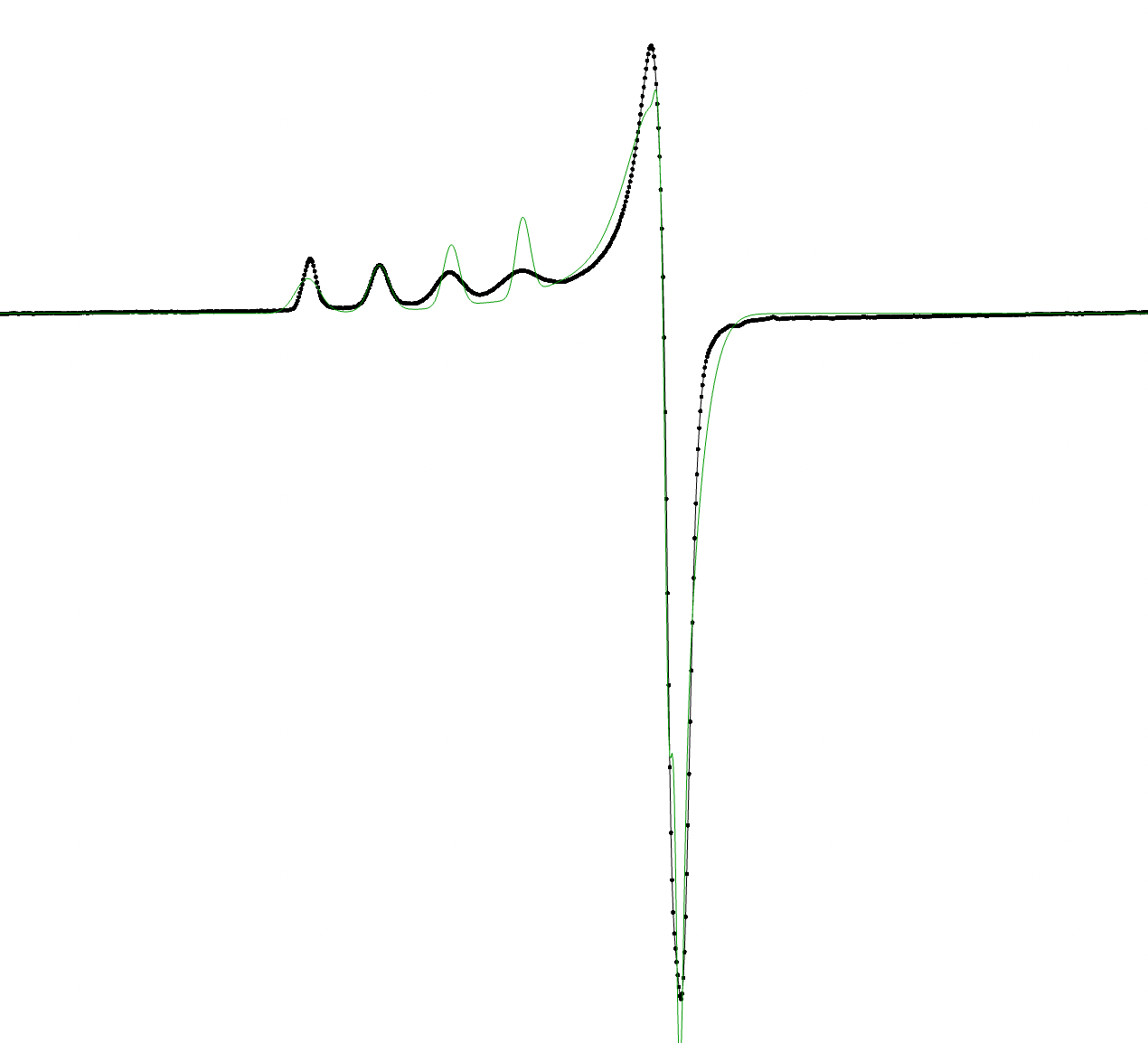Page 1 of 1
Cu and 51V simulation attempts
Posted: Wed Dec 15, 2021 4:19 pm
by tj@bc
Hello all--new user here, and my first request for help; please be patient if I make any etiquette errors.
I attempted to simulate spectra of an axially symmetric copper complex and an isotropic vanadium complex, and have not been as successful as I had hoped. I have attached the relevant code and results via screencaps, and would appreciate any feedback or advice.
Many thanks in advance!
Re: Cu and 51V simulation attempts
Posted: Thu Dec 16, 2021 4:04 pm
by thanasis
Seems like fluid solution spectra?
The first is simulated with pepper (which is for powders and frozen solutions) and the latter with garlic, but without defining a tcorr.
Maybe try out garlic with tcorr?
Re: Cu and 51V simulation attempts
Posted: Tue Dec 21, 2021 2:11 pm
by tj@bc
Thanks very much for the suggestion!
I tried the simulation of VOSO4 using tcorr, but it never really converged. I have attached a screen cap after I finally stopped the simulation. When I tried to vary tcorr, EasySpin first wanted me to define logtcorr instead; then it complained that the correlation was too slow (or fast, when I changed the numbers from ns to ps, just to check).
Please let me know if you have any more thoughts!
Re: Cu and 51V simulation attempts
Posted: Wed Dec 22, 2021 9:27 am
by ykliao
I think you need to give anisotropic g-tensor and hyperfine tensor.
Re: Cu and 51V simulation attempts
Posted: Wed Jan 12, 2022 1:37 pm
by tj@bc
Hello all--any thoughts on how to "fix" the g-parallel line widths for a copper compound at 130K?
Many thanks in advance!

- Screen Shot 2022-01-12 at 3.27.06 PM.png (325.7 KiB) Viewed 10621 times
Re: Cu and 51V simulation attempts
Posted: Fri Jan 14, 2022 11:54 am
by Stefan Stoll
If this is a rigid-limit spectrum, or close to it, you might want to consider to include g-A strain correlation, Sys.gAStrainCorr.
Re: Cu and 51V simulation attempts
Posted: Fri Jan 14, 2022 8:34 pm
by tj@bc
Perfect--thanks again, Professor Stoll--worked very nicely!